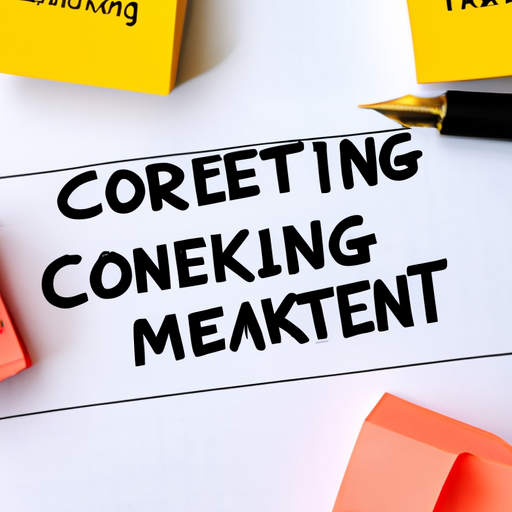Unlocking The Power Of Content Marketing Strategies
Content marketing strategies are the backbone of successful digital marketing campaigns.
They enable brands to connect with their audience, build trust, and drive conversions.
But what exactly makes a content marketing strategy effective?
And how can you implement one that aligns with your business goals?
Let’s dive into the world of content marketing and unravel its secrets.
What Are Content Marketing Strategies?
Content marketing strategies are comprehensive plans designed to create, publish, and distribute valuable content.
The goal is to attract, engage, and retain a clearly defined audience.
These strategies involve understanding your target audience‘s needs, preferences, and pain points.
By delivering relevant content consistently, businesses can establish themselves as industry leaders.
The Importance Of A Well-Crafted Content Strategy
A well-crafted content strategy is essential for several reasons:
– Brand Awareness: Quality content increases your brand’s visibility and recognition.
– Customer Engagement: Engaging content fosters stronger relationships with your audience.
– Lead Generation: Effective strategies convert visitors into leads and customers.
– SEO Benefits: Optimized content improves search engine rankings.
Without a solid strategy in place, your efforts may lack direction and fail to achieve desired outcomes.
Key Elements Of Successful Content Marketing Strategies
To craft an effective content marketing strategy, it’s crucial to understand its key components.
Here are some vital elements:
1. Setting Clear Goals And Objectives
Your strategy should start with well-defined goals.
Ask yourself what you aim to achieve through your content efforts.
Are you looking to increase website traffic?
Generate more leads?
Boost brand awareness?
Clear objectives will guide your actions and help measure success.
2. Understanding Your Audience
Knowing your audience is the cornerstone of any successful strategy.
Utilize a marketing information system to gather data on your target demographic’s behavior, preferences, and challenges.
Creating detailed buyer personas can provide deeper insights into what type of content will resonate most.
3. Conducting Competitor Analysis
Analyzing competitors’ strategies offers valuable insights into what’s working in your industry.
Identify the types of content they produce and which channels they use effectively.
This analysis can highlight gaps in the market that you can exploit with unique offerings.
Types Of Content To Include In Your Strategy
A diverse mix of content types keeps audiences engaged and caters to various preferences:
1. Blog Posts And Articles
Written content remains a staple in any strategy due to its versatility and SEO benefits.
Regular blog posts help establish authority while driving organic traffic through keywords like “content marketing strategies.”
2. Videos And Webinars
Visual content such as videos enhances engagement by providing digestible information quickly.
Webinars offer interactive experiences where audiences can gain value directly from experts.
3. Infographics And Visuals
Infographics break down complex information into easy-to-understand visuals.
They increase shareability on social media platforms – an essential factor for expanding reach organically.
The Role Of Social Media In Content Distribution
Social media plays a significant role in distributing your carefully crafted content effectively:
Create A Social Media Calendar
Planning ahead ensures consistent posting schedules across different platforms without overwhelming resources or missing opportunities for timely engagement events like holidays or promotions campaigns run by multilevel marketing companies aiming at potential recruits online!
Use analytics tools offered by major networks such as Facebook Insights or Twitter Analytics track performance metrics adjust tactics accordingly promote high-performing pieces further optimizing overall impact beyond initial publication date itself making sure nothing goes unnoticed even after initial buzz dies down around new releases!
Measuring Success: Analytics And Adjustments
Tracking performance metrics allows continuous improvement over time ensuring long-term success:
Analyze Key Performance Indicators (KPIs)
Monitor KPIs such as page views bounce rates conversion rates social shares comments identifying patterns trends indicating areas needing adjustments enhance future efforts maximize potential results achieved ongoing endeavors undertaken within framework established guidelines set forth beginning stages planning process involved creating implementing executed upon completion finalized projects delivered end-users benefiting ultimately driving growth profitability business operations dependent heavily upon proper execution initially formulated correctly monitored adjusted periodically necessary maintaining competitive edge marketplace saturated players vying attention limited pool available prospects consumers alike!
ernally infinitely infinitely infinitely…

